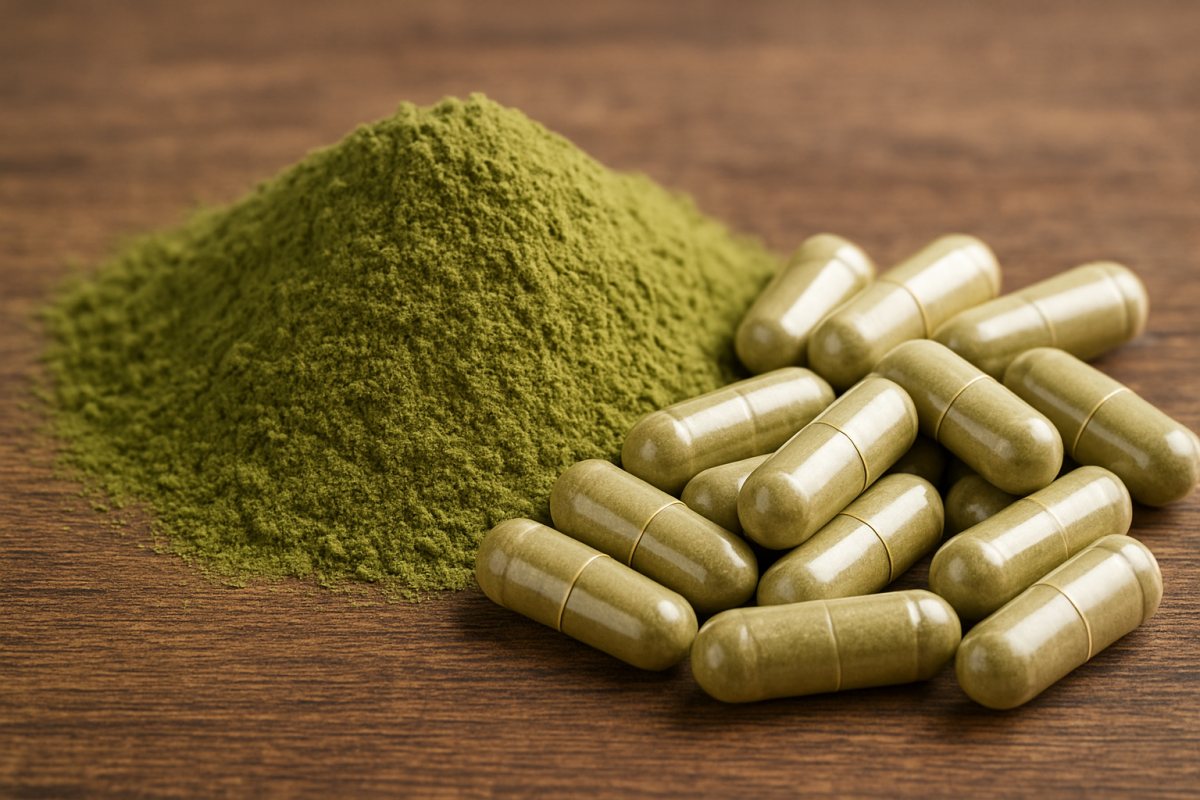Many people look for natural ways to manage nerve pain, and herbal supplements often stand out as an option worth exploring. These supplements come from plants that have been studied for their potential effects on the nervous system and overall comfort. Understanding what herbal supplements can and cannot do for nerve pain helps set realistic expectations and supports safer choices.
This topic matters because nerve pain can affect daily life in many ways, from movement to rest. While some herbs show promise, each option carries its own benefits and risks. Learning how these supplements work and understanding the importance of professional guidance provides a clearer path forward before adding them to a routine.
Consult a healthcare professional before starting herbal supplements to avoid interactions and side effects
Herbal supplements may seem safe because they are natural, but they can still cause side effects or interact with prescription drugs. A healthcare professional can review current medications and health conditions to decide if a supplement is appropriate. This step helps lower the risk of unwanted reactions.
Some supplements for neuropathy, such as alpha-lipoic acid, may support nerve health. Such supplements work by reducing oxidative stress, which can help protect nerve cells from damage. In addition, they may promote better circulation, enhancing the delivery of nutrients to damaged nerves.
Doctors also need to know about supplement use to correctly identify the cause of new or changing symptoms. Without this information, it can be difficult to tell if a problem comes from a medical condition or a reaction to an herbal product.
Consulting a professional before adding herbal remedies allows for safer and more informed choices. It helps balance potential benefits with possible risks.
St. John’s Wort may help reduce nerve pain by calming the nervous system and reducing inflammation
St. John’s Wort has a long history of use as a natural remedy for conditions that affect the nerves. Researchers have found that it may influence certain brain chemicals that play a role in mood and nerve sensitivity. This effect could explain why some people report less pain and tension after using it.
The plant also contains compounds with anti-inflammatory properties. Because inflammation can worsen nerve pain, reducing it may ease discomfort. This makes St. John’s Wort an option some people consider for issues like sciatica or nerve damage.
In addition to its potential effects on pain, St. John’s Wort may support relaxation of the nervous system. Calmer nerves may respond less strongly to pain signals, which could provide further relief.
Topical oils made from the flowers are sometimes applied to sore areas, while capsules or teas are used internally. However, the form and dose can affect results, and responses vary from person to person.
Turmeric contains curcumin, which has anti-inflammatory properties beneficial for neuropathy
Turmeric is a spice that contains curcumin, its main active compound. Curcumin has been studied for its anti-inflammatory and antioxidant effects, which may help reduce nerve irritation linked to neuropathy. These properties make it a popular option for people interested in natural approaches to managing discomfort.
Researchers suggest that inflammation can worsen nerve pain over time. By targeting this process, curcumin may support healthier nerve function. Some studies also show that curcumin can reduce pain signals in the body, which may provide relief for individuals with neuropathic symptoms.
Turmeric can be added to food or taken in supplement form. However, the body does not absorb curcumin well on its own, so it is often combined with other ingredients to improve absorption. People should discuss use with a healthcare provider, especially if they have medical conditions or take prescription drugs.
Though more research is needed, current evidence indicates turmeric may provide gentle support for nerve health through its anti-inflammatory effects.
Lion’s Mane Mushroom supports nerve regeneration and may improve nerve function
Lion’s Mane mushroom has gained attention for its potential effects on the nervous system. Research suggests that compounds in this mushroom, such as hericenones and erinacines, may stimulate nerve growth factor, a protein that supports the survival and repair of nerve cells. This makes it a candidate for supporting nerve health.
Studies in animals and small human trials indicate that Lion’s Mane may encourage nerve regeneration after injury. Some evidence also points to possible benefits for people with neuropathic pain, as it may reduce discomfort and improve function in damaged nerves.
Researchers have also explored its role in brain health. Early findings suggest it could help protect neurons from damage and support memory and learning. These effects appear linked to its ability to promote nerve cell growth and communication in the nervous system.
Although results look promising, larger clinical studies are still needed. People interested in Lion’s Mane should discuss its use with a healthcare professional before adding it to their routine.
Gotu Kola is known to improve nerve repair and reduce discomfort associated with neuropathy
Gotu kola, also called Centella asiatica, has a long history in traditional medicine for supporting brain and nerve health. Researchers have studied its compounds, such as asiaticoside and madecassoside, for their possible role in nerve growth and repair. These natural chemicals may help the body restore damaged nerve tissue.
Some studies suggest that gotu kola can improve circulation, which may ease discomfort linked to neuropathy. Better blood flow supports oxygen and nutrient delivery to nerves, which can reduce swelling and pain in affected areas. This makes it a useful herb for people with poor circulation and nerve-related issues.
In addition, early research points to calming effects on the nervous system. By influencing neurotransmitters that regulate stress and relaxation, gotu kola may reduce nerve sensitivity and improve comfort. While evidence is still limited, many people use it as a supplement, tea, or topical cream to support nerve health.
Conclusion
Herbal supplements may provide support for people with nerve pain through anti-inflammatory, antioxidant, and neuroprotective effects. Some herbs and nutrients show promise, but research remains limited, and results can vary between individuals.
They can be used as part of a broader plan that includes diet, exercise, and medical care. However, safety should always come first, especially for those who are pregnant, have chronic conditions, or take prescription medications.
Therefore, anyone considering these supplements should discuss options with a healthcare professional. This step helps reduce risks and allows for a more tailored approach to managing nerve pain.


















































































































